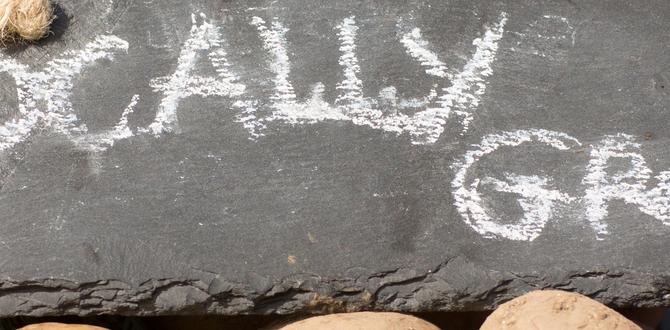Quick Summary: Plan an unforgettable 2-week Bavaria itinerary with this essential guide. Discover the best of Bavarian culture, castles, and scenery, from Munich’s vibrant heart to the fairytale landscapes of the Alps. This beginner-friendly plan ensures a stress-free adventure, covering must-see sights, comfortable travel, and practical tips for every traveler.
Planning a trip to Bavaria can feel a bit overwhelming, especially if it’s your first time exploring this stunning German region. Many travelers worry about fitting in everything they want to see without rushing too much. How do you balance iconic castles with charming villages? How do you navigate getting around the beautiful Bavarian Alps? Don’t worry, we’ve got you covered! This guide breaks down a perfect 14-day itinerary, making sure you experience the magic of Bavaria comfortably and efficiently. Get ready for an adventure filled with breathtaking views, delicious food, and unforgettable memories!
Your Essential Bavaria 2 Weeks Itinerary: A Magical Journey
Bavaria, Germany’s largest state, is a land of fairy-tale castles, majestic mountains, and vibrant cities. A two-week trip is the perfect amount of time to soak in its diverse beauty, from the bustling streets of Munich to the serene beauty of the Bavarian Alps and the historic charm of its smaller towns. This itinerary is designed for beginners, focusing on a comfortable pace, efficient travel, and experiencing the essence of this incredible region.
We’ll guide you through the must-see attractions, suggest practical travel methods, and offer tips to make your journey smooth and enjoyable. Whether you’re traveling solo, as a couple, or with family, this plan is adaptable to your preferences. Let’s dive into your essential Bavaria 2 weeks itinerary!
Understanding Bavaria’s Appeal
Bavaria is famous for its picturesque landscapes, including the rolling hills, crystal-clear lakes, and the dramatic peaks of the Alps. Culturally, it’s rich with traditions, reflected in its friendly locals, hearty cuisine, and unique festivals like Oktoberfest. It’s a region that offers something for everyone, from history buffs and nature lovers to foodies and adventure seekers.
Best Time to Visit Bavaria
While Bavaria is beautiful year-round, timing can greatly impact your experience.
- Spring (April-May): Pleasant weather, fewer crowds, and blooming landscapes. Ideal for hiking and exploring before peak summer.
- Summer (June-August): Warmest weather, perfect for outdoor activities and lake visits. This is also the busiest and priciest season.
- Autumn (September-October): Crisp air, beautiful fall foliage, and harvest festivals. A favorite time for many due to its stunning visual appeal and comfortable temperatures.
- Winter (November-March): Magical Christmas markets, snow-covered Alps for skiing, and a cozy atmosphere. Can be very cold, and some attractions may have limited hours.
Getting Around Bavaria
Germany boasts an excellent public transportation system, making it easy to navigate Bavaria without a car.
- Trains: The Deutsche Bahn (DB) is efficient and connects major cities and towns. Longer distances are best covered by train. Consider a Bayern Ticket for day trips within Bavaria – it’s a cost-effective option for groups and covers regional trains, S-Bahn, U-Bahn, trams, and buses. You can find more information on ticket options on the official Deutsche Bahn website.
- Buses: Regional buses fill in the gaps where trains don’t go, especially for smaller villages.
- Car Rental: If you prefer flexibility, especially for exploring remote areas or the Romantic Road, renting a car is a good option. However, parking in cities can be challenging and expensive.
- Public Transport within Cities: Munich and other larger cities have extensive U-Bahn (subway), S-Bahn (urban rail), tram, and bus networks.
Your 14-Day Bavaria Adventure: A Detailed Itinerary
This itinerary balances iconic sights with hidden gems, moving at a manageable pace. We’ll start in the vibrant capital, delve into fairytale lands, and explore picturesque alpine scenery.
Days 1-3: Munich – The Bavarian Capital
Your journey begins in Munich, a city that effortlessly blends tradition with modernity. It’s a fantastic introduction to Bavarian culture, offering world-class museums, beautiful parks, and lively beer gardens.
What to Do in Munich:
- Marienplatz: The heart of the city, famous for its stunning New Town Hall and the Glockenspiel, which puts on a show twice a day.
- Hofbräuhaus: Experience the most famous beer hall in the world. Even if you don’t drink beer, the atmosphere is uniquely Bavarian.
- Englischer Garten: One of the largest urban parks in the world. Relax, watch the surf wave on the Eisbach, or visit the Chinese Tower beer garden.
- Deutsches Museum: A paradise for anyone interested in science and technology, one of the oldest and largest science museums globally.
- Viktualienmarkt: A vibrant food market where you can sample local delicacies and soak in the lively atmosphere.
- Residenz: The former royal palace of the Bavarian monarchs, offering a glimpse into opulent history.
Getting to Munich:
Munich Airport (MUC) is a major international hub. From the airport, you can take the S-Bahn trains (S1 or S8 lines) directly to the city center (e.g., Marienplatz) in about 40-45 minutes.
Accommodation in Munich:
Stay near Marienplatz or the main train station (Hauptbahnhof) for easy access to attractions and transport. A range of options from budget-friendly hostels to luxury hotels is available.
Day 4: Day Trip to Dachau Concentration Camp Memorial Site
A sobering but essential visit, the Dachau Concentration Camp Memorial Site offers a profound historical perspective. It’s easily accessible from Munich.
How to Get There:
Take the S-Bahn S2 line from Munich towards Dachau/Petershausen. Get off at Dachau station and then take bus number 726 directly to the memorial site.
Visiting the Memorial:
Allow at least 3-4 hours for your visit. Guided tours are available and highly recommended for a deeper understanding of the site’s history. Be prepared for an emotionally impactful experience.
Days 5-6: Nuremberg – History and Charm
Travel north to Nuremberg, a city rich in medieval history, artistic heritage, and a more somber recent past. It’s a compact and walkable city, perfect for exploration.
What to Do in Nuremberg:
- Nuremberg Castle (Kaiserburg): Iconic medieval fortress offering panoramic city views.
- Altstadt (Old Town): Wander through charming cobblestone streets, admire well-preserved half-timbered houses, and visit the Hauptmarkt (Main Market Square).
- St. Lorenz Church and Frauenkirche: Magnificent Gothic and Baroque churches.
- Documentation Center Nazi Party Rally Grounds: A crucial site for understanding Germany’s 20th-century history. It’s located on the former Nazi Party rally grounds.
- Albrecht Dürer House: Visit the home of the famous Renaissance artist.
- Christmas Market: If visiting in late November or December, Nuremberg’s Christkindlesmarkt is world-renowned.
Getting to Nuremberg:
Take a direct train from Munich Hauptbahnhof to Nuremberg Hauptbahnhof. The journey typically takes 1 to 1.5 hours by high-speed ICE train.
Accommodation in Nuremberg:
Look for accommodations within or near the Altstadt for easy sightseeing.
Days 7-9: The Romantic Road & Rothenburg ob der Tauber
No Bavarian itinerary is complete without a glimpse of the Romantic Road. While driving allows ultimate flexibility, we’ll focus on a key highlight accessible by public transport.
Focus: Rothenburg ob der Tauber
This exceptionally well-preserved medieval town is like stepping back in time. Its colorful half-timbered houses, town walls, and cobblestone lanes make it a must-visit.
What to Do in Rothenburg:
- Walk the Town Walls: Get a fantastic perspective of the town and surrounding countryside.
- Plönlein: The iconic picturesque fork in the road with a yellow and red half-timbered house.
- St. James’s Church (St. Jakobs-Kirche): Admire its impressive interior and the Holy Blood Altar.
- Medieval Crime and Justice Museum: A fascinating (and slightly grim) look at historic law enforcement.
- Town Square (Marktplatz): The central hub, surrounded by beautiful buildings and the Town Hall.
Getting to Rothenburg ob der Tauber:
This requires a bit more planning with public transport.
- Take a train from Nuremberg to Ansbach.
- From Ansbach, take a regional train towards Dombühl.
- Change trains again in Dombühl for the one going directly to Rothenburg ob der Tauber.
The total journey can take around 2 to 2.5 hours. Alternatively, you could base yourself in Würzburg or Dinkelsbühl and take a day trip, or consider a guided tour that covers parts of the Romantic Road.
A Note on the Romantic Road and Car Rental:
If you truly want to experience the full Romantic Road, including towns like Dinkelsbühl, Nördlingen, and Wieskirche, renting a car for a few days might be worthwhile. You could pick up a car in Nuremberg and drop it off in Füssen, for instance, allowing you to explore at your own pace. This is where travel insurance and understanding rental terms become crucial. For example, checking the policies from reputable providers like Allianz Travel Insurance or World Nomads can offer peace of mind when planning such flexible travel legs.
Accommodation in Rothenburg:
Stay within the old town walls for the most atmospheric experience. Book in advance, especially during peak season.
Days 10-12: Füssen & The Bavarian Alps – Castles and Lakes
Prepare for breathtaking alpine scenery and iconic castles. Füssen is your gateway to some of Bavaria’s most famous landmarks.
What to Do in the Füssen Area:
- Neuschwanstein Castle: The “fairytale castle” that inspired Disney. Book tickets well in advance online!
- Hohenschwangau Castle: The childhood home of King Ludwig II, overlooking a beautiful lake.
- Alpsee: Enjoy a stroll or boat ride on this stunning turquoise lake at the foot of Hohenschwangau Castle.
- Tegelbergbahn: A cable car ride offering spectacular views of the castles and surrounding Alps.
- Füssen Town: Explore the charming old town, visit the High Castle (Hohes Schloss), and enjoy the Lech River.
- Eibsee Lake: (A bit further, but worth considering if you have a car or a dedicated day trip) A stunning glacial lake offering incredible views of the Zugspitze.
Getting to Füssen:
Take a train from Rothenburg ob der Tauber to Füssen. This will likely involve a couple of changes, typically via Augsburg or Munich. The entire journey can take around 4-5 hours. It’s a scenic ride into the heart of the Alps.
Accommodation in Füssen:
Füssen offers a range of hotels, guesthouses, and apartments. Staying closer to the train station can be convenient for travel, while accommodations nearer the town center offer more charm.
Days 13-14: Return to Munich & Departure
Head back to Munich to explore anything you missed, do some last-minute souvenir shopping, or simply relax before your departure.
Final Munich Experiences:
- Revisit your favorite spot.
- Explore the Glockenbachviertel for trendy shops and cafes.
- Enjoy a final Bavarian meal in a traditional restaurant.
- Visit the Pinakothek art museums if you’re an art enthusiast.
Getting to the Airport:
From Munich Hauptbahnhof, take the S1 or S8 S-Bahn line directly to Munich Airport (MUC).
Essential Packing Tips for Your Bavaria Trip
Comfort and practicality are key to enjoying your travels. Here’s what you should consider packing, especially if you’re managing specific needs like adult or child diapers for a smooth journey.
Clothing Essentials:
- Layers: Bavarian weather can be unpredictable. Pack t-shirts, long-sleeved shirts, sweaters, and a waterproof, windproof jacket.
- Comfortable Walking Shoes: You’ll be doing a lot of walking on cobblestone streets and trails.
- Smart Casual Outfit: For nicer dinners or evenings out.
- Hiking Gear (Optional): If you plan on significant hiking in the Alps.
- Travel Towel: Lightweight and quick-drying, useful for hostels or spontaneous dips.
Health and Comfort:
For any trip, carrying essentials that support comfort and dignity is paramount. This is especially true for parents traveling with children who may require diapers, or for adults who prefer the security and convenience of discreet diaper solutions during long travel days or when exploring extensively.
- Travel-Sized Toiletries: Including sunscreen, hand sanitizer, and any personal medications.
- First-Aid Kit: Band-aids, pain relievers, antiseptic wipes.
- Diapers and Wipes Container: For children, consider compact, discreet bags for used diapers like the Ubbi Diaper Pail or reusable wet bags. For adults seeking discreet, reliable products for comfort and security, options from brands like TENA or Depend offering adult diapers or protective underwear are readily available online and in pharmacies. Packing enough for your trip or knowing where to purchase them at your destination can alleviate stress. For example, researching local pharmacies in Munich or Nuremberg in advance can be helpful.
- Comfort Travel Pillow: Especially for train journeys.
- Reusable Water Bottle: Stay hydrated and reduce plastic waste.
Documents and Electronics:
- Passport and Visa (if required)
- Flight and Accommodation Bookings
- Travel Insurance Details
- European Power Adapter
- Portable Power Bank
- Camera and Extra Memory Card
- Downloaded Offline Maps (Google Maps, Maps.me)
Sample Costs for a 2-Week Bavaria Trip (Estimates)
Prices can vary greatly depending on your travel style, accommodation choices, and activities. These are general estimates for a mid-range budget traveler.
| Category | Estimated Cost (per person, 14 days) | Notes |
|---|---|---|
| Flights | €600 – €1200+ | Highly variable based on origin and booking time. |
| Accommodation | €700 – €1400 | (€50-€100 per night); Hostels, guesthouses, 3-star hotels. |
| Transportation (within Bavaria) | €200 – €350 | Includes train tickets, Bayern Tickets, local transport. Car rental significantly increases cost. |
| Food & Drink | €560 – €840 | (€40-€60 per day); Mix of restaurants, cafes, and groceries. |
| Activities & Entrance Fees | €250 – €450 | Includes castle tickets, museum entries. |
| Miscellaneous (Souvenirs, etc.) | €150 – €300 | Personal spending. |
| Total Estimated Budget | €2460 – €4540+ | Excluding flights. |
Tip: Book accommodations and popular attraction tickets (like Neuschwanstein) in advance to secure your spot and potentially better prices. Utilizing Bayern Tickets can significantly reduce train costs for day trips.
Frequently Asked Questions (FAQ)
What is the best way to travel between cities in Bavaria for a 2-week trip?
For convenience and cost-effectiveness, trains are excellent. The Deutsche Bahn (DB) network is extensive. For regional travel within Bavaria on day trips or between smaller towns, the Bayern Ticket is a great value for groups and offers flexibility on regional trains and local public transport.
Do I need to book castle tickets in advance?
Yes, absolutely! For Neuschwanstein Castle



